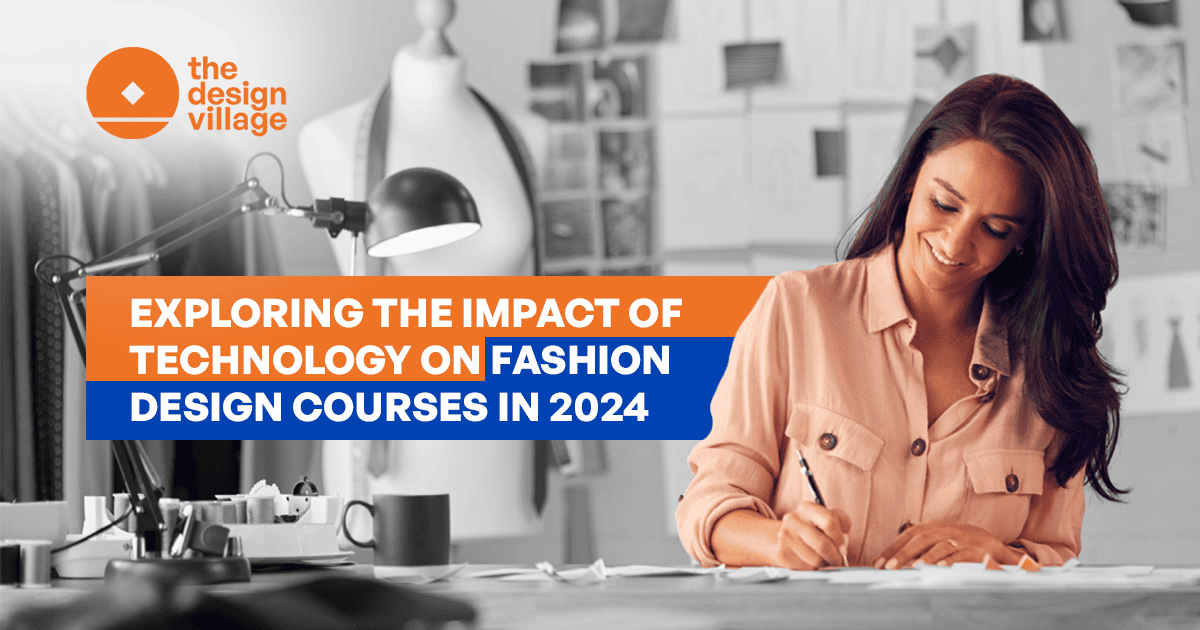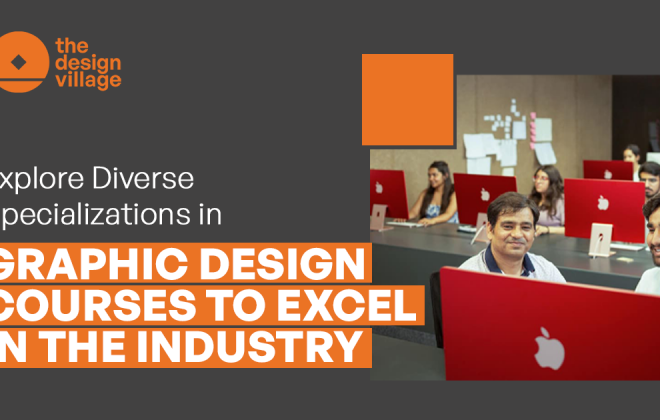The fashion industry has always been at the forefront of innovation and creativity. In 2024, the intersection of technology and fashion design is transforming educational paradigms and career trajectories. From virtual reality (VR) to artificial intelligence (AI), these technological advancements are revolutionizing how fashion design…
Exploring the Impact of Technology on Fashion Design Courses in 2024
The fashion industry has always been at the forefront of innovation and creativity. In 2024, the intersection of technology and fashion design is transforming educational paradigms and career trajectories. From virtual reality (VR) to artificial intelligence (AI), these technological advancements are revolutionizing how fashion design is taught and practiced. This comprehensive exploration delves into the profound impact of technology on fashion design courses, highlighting the benefits and opportunities for aspiring designers. Additionally, we examine the offerings of the best fashion designing colleges in Noida, their top courses, and the advantages of pursuing a B.Des in Fashion Design.
The Technological Revolution in Fashion Design Education
Virtual Reality and Augmented Reality
Virtual Reality (VR) and Augmented Reality (AR) have introduced new dimensions to fashion design education. These technologies enable students to immerse themselves in virtual design studios, where they can experiment with different fabrics, patterns, and styles without the need for physical materials. This not only fosters creativity but also enhances practical skills.
For instance, students can use VR headsets to visualize their designs in a 3D space, allowing them to make real-time adjustments and see how garments fit on virtual models. The benefits of fashion designing is further enhanced with AR applications, which can overlay digital designs onto physical mannequins, providing a seamless blend of digital and physical design processes.
Artificial Intelligence and Machine Learning
Artificial Intelligence (AI) and Machine Learning (ML) are playing pivotal roles in streamlining the design process. AI-driven software can predict fashion trends by analyzing vast amounts of data from social media, fashion shows, and consumer preferences. This enables students to stay ahead of trends and incorporate contemporary styles into their projects.
ML algorithms can also assist in fabric selection, pattern making, and even in generating design ideas based on predefined criteria. This automation allows students to focus more on the creative aspects of fashion design, enhancing their overall learning experience.
3D Printing and Fabrication
3D printing technology is revolutionizing the way fashion design students create prototypes and final products. This technology allows for the creation of intricate designs and structures that would be impossible or extremely time-consuming to achieve with traditional methods. Students can print their designs using various materials, including sustainable and recyclable options, promoting eco-friendly fashion practices.
Digital Portfolio and E-Commerce Integration
In today’s digital age, having a robust online presence is crucial for aspiring fashion designers. Courses now emphasize the creation of digital portfolios, where students can showcase their work to potential employers and clients. E-commerce integration within the curriculum teaches students how to set up online stores, manage digital marketing campaigns, and understand the logistics of selling fashion products online.
Benefits of Technology in Fashion Designing Courses
Enhanced Creativity and Innovation
The integration of technology in fashion design courses significantly enhances creativity and innovation. Students can experiment with different design elements without the constraints of traditional methods. This freedom encourages out-of-the-box thinking and the development of unique fashion statements.
Real-Time Feedback and Collaboration
Technological tools facilitate real-time feedback and collaboration between students, instructors, and industry professionals. Virtual classrooms and online platforms enable seamless communication, allowing for instant critique and improvement of designs. This collaborative environment mirrors the real-world fashion industry, preparing students for future professional interactions.
Sustainable Practices
Technology promotes sustainable fashion practices by reducing waste and encouraging the use of eco-friendly materials. Digital design and 3D printing minimize the need for physical samples, cutting down on fabric waste. Additionally, AI can help identify sustainable materials and methods, promoting environmentally conscious fashion design.
Benefits of Pursuing a B.Des in Fashion Design
Comprehensive Skill Development
A B Des Fashion Design provides a well-rounded education, covering essential aspects of fashion design, such as textiles, pattern making, garment construction, and fashion illustration. The inclusion of technology in the curriculum ensures students are proficient in digital design tools, enhancing their employability.
Industry Exposure
Top fashion designing colleges in Noida offer extensive industry exposure through internships, workshops, and guest lectures by industry experts. This practical experience is invaluable, allowing students to apply their knowledge in real-world settings and build professional networks.
Diverse Career Opportunities
Graduates with a B.Des Fashion Design have a plethora of career opportunities, ranging from fashion designers and stylists to fashion merchandisers and brand managers. The integration of technology in their education equips them with the skills needed for roles in digital fashion marketing, e-commerce, and sustainable fashion.
Entrepreneurial Skills
Fashion design courses now emphasize entrepreneurial skills, teaching students how to start and manage their own fashion businesses. Courses on digital marketing, e-commerce, and brand management are integral parts of the curriculum, preparing students to navigate the competitive fashion industry successfully.
Fashion Designing Course in Noida Fees
The fees for the best fashion designing courses Noida vary depending on the institution and the specific program. On average, the annual fees for a B.Des in Fashion Design range from INR 1,00,000 to INR 3,00,000. These fees typically cover tuition, access to state-of-the-art facilities, and various resources needed for practical and theoretical learning.
Scholarships and Financial Aid
Many institutions offer scholarships and financial aid to deserving students based on merit and need. Prospective students are encouraged to explore these options to make their education more affordable.
Conclusion
The impact of technology on fashion design courses in 2024 is profound, offering new opportunities for creativity, innovation, and sustainability. Aspiring fashion designers can benefit immensely from the technological advancements integrated into their education, preparing them for successful careers in the dynamic fashion industry.
For those looking to pursue a career in fashion design, the best fashion designing colleges in Noida provide a blend of traditional design principles and modern technology, ensuring a comprehensive and future-ready education. By enrolling in a B.Des in Fashion Design program, students can acquire the skills and knowledge needed to excel in various roles within the fashion industry, from creative design to digital marketing and sustainable fashion practices.
With the right education and training, aspiring designers can harness the power of technology to create innovative and impactful designs, shaping the future of fashion in the process.






